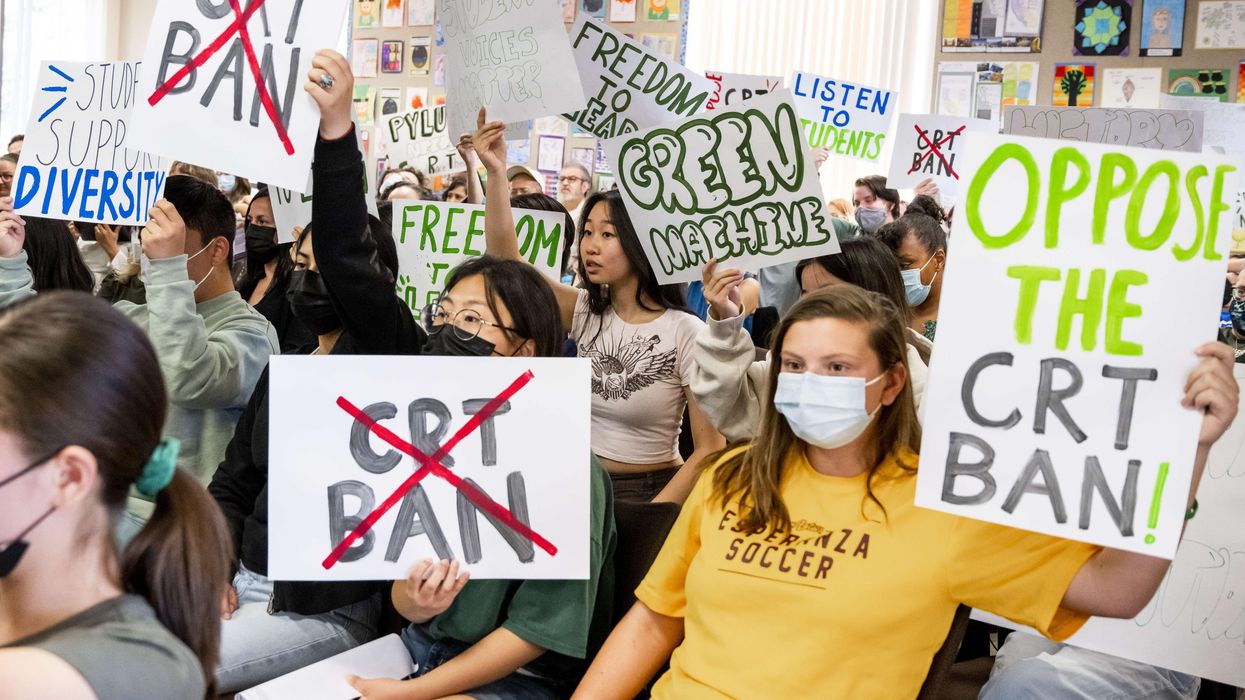Anderson edited "Leveraging: A Political, Economic and Societal Framework" (Springer, 2014), has taught at five universities and ran for the Democratic nomination for a Maryland congressional seat in 2016.
As the new school year is beginning, it is time to consider a new approach to teaching race, racial relations and racism in the United States.
Critical race theory, developed by law professors Derek Bell, Kimberle Crenshaw, Richard Delgado and others in the 1970s and 1980s, sought to demonstrate that the legal structure in the United States, including Brown vs. Board of Education and the Civil Rights Act of 1964, still discriminated against African Americans and other minorities. CRT theorists argued that liberal advocates for eliminating political and economic inequality against African Americans did not dig deep enough. Moreover, Crenshaw argued that some people, notably Black women, live at the intersection of multiple kinds of oppression (gender and race).
The public debate in the United States today about CRT is not in fact about the legal scholarship that defined the theory. Instead, the fight over what is wrongly called CRT is basically about the question of whether the detailed history of systematic racism in America should be taught in elementary, middle and high schools.
Since January 2021, 42 states have tried to ban teaching "CRT"either through laws or other means, and 17 states have been able to impose bans in one way or another.
Proponents say systemic racism should be taught because it is the truth. Opponents say systemic racism should not be taught because it not only is not the truth but teaching it would be harmful to adolescents or certainly young children. If white students, conservatives say, are required to learn vivid details about slavery in the colonies, Jim Crow laws and lynchings in the Southern states, then these students will be made to feel guilty and remorseful and as though they and their parents are racists.
There is an unexplored third alternative, namely teaching both systemic racism and a conservative approach to racial relations in America. After all, at the college level students in the social sciences and humanities typically learn rival theories about a subject matter, whether it is economics, psychology, philosophy, English literature or history. A standard introductory course requires that students demonstrate a general understanding of the competing schools of thought in the field. For example, in psychology students must demonstrate knowledge of psychoanalysis, behaviorism, social learning theory and cognitive psychology.
Thus why do we ask whether systemic racism should be taught as "the truth" to our K-12 students? We do not teach college students that there is one and only one view about race, racial relations and American history. So why should we teach students in K-12 that there is only one view about race, racial relations and American history?
Some will say that our K-12 students, certainly K-6 students, cannot be expected to understand the rivalries between different theoretical camps about racial relations in America, even two camps (although there are more than two). And they may say that systemic racism needs to be taught as the truth in a basic course on civic education.
But current high school social studies textbooks frequently do discuss rival camps. For example, global studies books explain the differences between laissez-faire capitalism, the mixed-economy and socialist economic theory.
Moreover, it is very hard to conceive every school in the United States having a basic course on civic education that advocates for the systemic racism perspective when you consider K-12 education is chiefly a state and local matter.
We should encourage schools, certainly high schools, to teach both systemic racism and a more traditional view that recognizes basic facts about slavery and injustice but which challenges progressive views about systematic racism. If there are schools that only wish to teach a conservative view, well no one, certainly not the federal government, is going to stop them or can stop them. But giving students more than one perspective on this extremely complex and controversial topic is better than giving them any one view and saying that it is the truth, whether that is a left-wing or right-wing view.
Teaching systemic racism is not a matter of either/or. Promoting an either/or mentality, moreover, pits progressives against conservatives and adds to the polarization in the country, which is most evident in Washington, D.C., and at the extremes of both parties nationwide. Clarifying and then reshaping and accurately naming the CRT debate can be part of a broader social and political movement to find a new center for American politics and culture.




















Trump & Hegseth gave Mark Kelly a huge 2028 gift